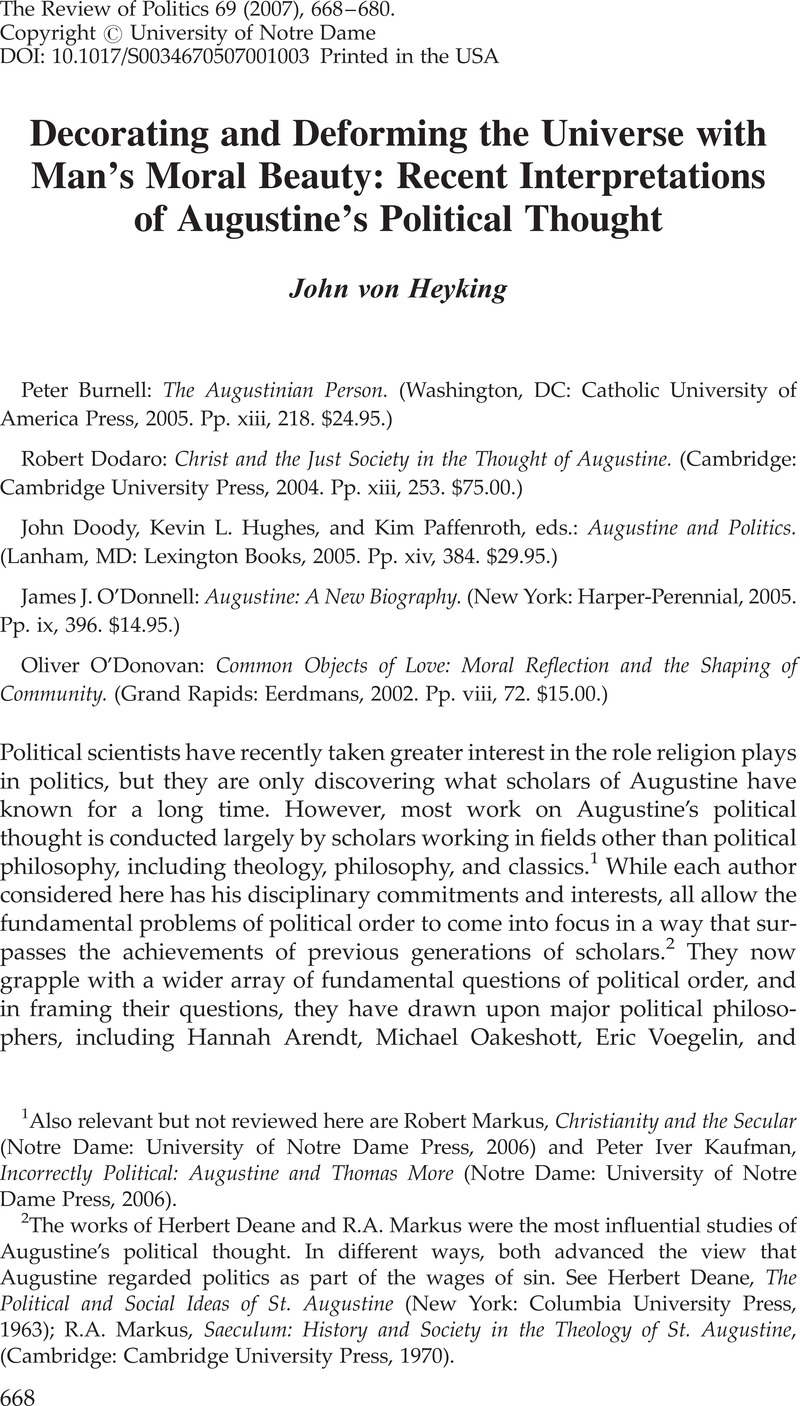Published online by Cambridge University Press: 26 October 2007

1 Also relevant but not reviewed here are Markus, Robert, Christianity and the Secular (Notre Dame: University of Notre Dame Press, 2006)Google Scholar and Kaufman, Peter Iver, Incorrectly Political: Augustine and Thomas More (Notre Dame: University of Notre Dame Press, 2006)Google Scholar.
2 The works of Herbert Deane and R.A. Markus were the most influential studies of Augustine's political thought. In different ways, both advanced the view that Augustine regarded politics as part of the wages of sin. See Deane, Herbert, The Political and Social Ideas of St. Augustine (New York: Columbia University Press, 1963)Google Scholar; Markus, R.A., Saeculum: History and Society in the Theology of St. Augustine, (Cambridge: Cambridge University Press, 1970)Google Scholar.
3 Breyfogle identifies uncritical use of the very term, “politics” as well as “state” (“Toward a Contemporary Augustinian Understanding of Politics,” in Augustine and Politics, 218).
4 Thomas W. Smith, “The Glory and Tragedy of Politics,” in Augustine and Politics, 202.
5 I have examined the Saguntine example in Augustine and Politics as Longing in the World (Columbia, MO: University of Missouri Press, 2001), 52–59.
6 For details, see my Augustine and Longing in the World, ch. 7.
7 See Dodaro's more even treatment of Augustine's approach to slavery in his contribution to Augustine and Politics (“Between Two Cities: Political Action in Augustine of Hippo,” 104–5).
8 William F. Buckley Jr., “Porn, Pervasive Presence,” National Review, November 19, 2001 (http://www.nationalreview.com/19nov01/buckley111901.shtml).
9 Burnell, Peter J., “The Status of Politics in St. Augustine's City of God,” History of Political Thought 13 (1992): 13–29Google Scholar; “The Problem of Service to Unjust Regimes in Augustine's City of God,” Journal of the History of Ideas, 54(2): 177–88 (1993).
10 See my “Disarming, Simple, and Sweet: Augustine's Republican Rhetoric,” in Talking Democracy: Historical Perspectives on Rhetoric and Democratic Deliberation, eds., Benedetto Fontana, Cary J. Nederman, and Gary Remer (University Park, PA: Penn State University Press, 2004), 163–86.